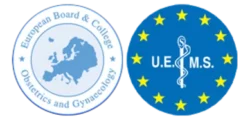
An Introduction to the European Board and College of Obstetrics and Gynaecology (EBCOG)
EBCOG’s aim is to improve the health of women and unborn and newborn babies by promoting the highest possible standards of care. EBCOG’s core activities are education and training. We work with subspecialties, special interest societies, trainees and European interest groups to achieve this. We work closely with the European trainees’ organisation, ENTOG and offer fellowships together annually.
EBCOG consists of four Officers, an Executive Committee and Council which is made up of two national delegates from each of our member countries. Council, with its 36 member countries, is the decision-making body of EBCOG.
EBCOG’s Main Activities
Standards of Care
As part of our focus on quality assurance and patient safety, EBCOG has produced two sets of Standards of Care for Women’s Health; one for Obstetric and Neonatal Services and one for Gynaecology Services. These documents were officially launched in the European Parliament in November 2014.
In 2015, EBCOG met with the European Commissioner for Health and Food Safety, who said that he and his Cabinet would engage with EBCOG to explore how the Commission and EBCOG could support each other to achieve a mutual vision of equitable, safe, efficient and sustainable healthcare systems in the EU.
In 2015, at the request of WHO, EBCOG agreed to discuss sexual and reproductive health (SRH), maternal mortality and child health with the European Commission with regard to prioritising them as part of EU policy.
In August 2015, FIGO agreed that EBCOG should act as a representative for obstetrics and gynaecology in relation to the WHO Regional Office for Europe. EBCOG took part in the Regional Consultation on the development of the European Action Plan for Sexual and Reproductive Health and Rights (SRHR) 2017–2021.
Along with WHO, UNFPA gave EBCOG a grant to translate the EBCOG Standards of Care into Russian. These documents were translated by the UNFPA and the Russian Society of Ob/Gyn, which is a member of EBCOG. EBCOG has also designed and delivered courses in SRH in this region.
One of EBCOG’s priorities is to promote the introduction of visiting in those countries which do not have a national visiting system. EBCOG carries out visits to departments which request a visit. If appropriate, these departments are normally accredited for a 5 year period. A Subspecialty subcommittee is, together with the subspecialties, responsible for organising and conducting subspecialist visits.
Examination
The purpose of the examination is to assess the level of competency of candidates regarding their knowledge and judgement, although skills and attitude are also evaluated. This approach supports the free movement of quality assured specialists across borders within Europe.
Standing Committee on Training and Assessment (SCTA)
The SCTA has produced a new European Curriculum PACT and log books for both specialist and subspecialist training as well as recommendations for ‘Training the Trainers (TTT)’. EBCOG runs regular TTT courses. The implementation of a pan European curriculum will create a workforce with comparable skills and training to ensure patient safety.
Position Statements
EBCOG’s Position Statements are published on the web site and in the European Journal of Obstetrics, Gynaecology and Reproductive Biology which is now the official Journal of EBCOG. These are intended to be used as formal statements on issues of public health in Europe.
FIGO
EBCOG is the official representative of European Obstetricians and Gynaecologists within FIGO. A representative of FIGO also sits on the EBCOG Executive Committee and Council. EBCOG was invited to contribute on the FIGO Working Party for the 2021 World Congress in Sydney.
European Congress of Obstetrics and Gynaecology
The European Congress takes place every two years. The next European Congress in 2025 will be held in Frankfurt.
History
The European Board was founded in 1952 to protect working conditions in this medical specialty under UEMS. The European College was founded in 1991. The organisations were combined to form EBCOG in 1996. Lord Sir Naren Patel (Past President of the RCOG) served as President of European Association of Gynaecology and Obstetrics (EAGO) prior to the inception of EBCOG in 1996.
Presidents of EBCOG
1996-1999: Professor Richard Beard, United Kingdom
1999-2002: Professor Wolfgang Kuenzel, Germany
2002-2005: Professor Andre van Assche, Leuven, Belgium
2005-2008: Professor William Dunlop , UK (Past President of the RCOG)
2008-2011: Professor Peter Hornnes, Denmark
2011-2014: Professor Chiara Benedetto, Italy
2014-2017: Dr Tahir Mahmood, United Kingdom
2017-2020: Professor Jacky Nizard, France
2020-2023: Professor Basil Tarlatzis, Greece
2023-2025: Professor Frank Louwen, Germany
2025 – : Assoc. Professor (Hon.) Sambit Mukhopadhyay, United Kingdom
